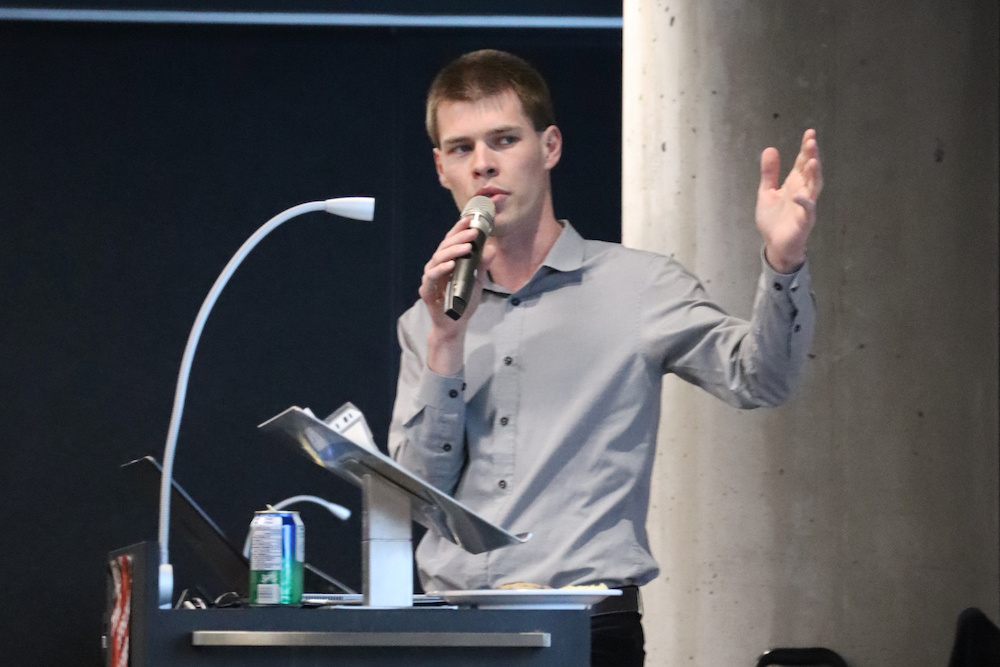Contract negotiations for teaching and research assistants union to resume in February
About 60 members of Teaching and Research Assistants at Concordia (TRAC) gathered to discuss the union’s priorities for the winter 2018 semester at a special general assembly on Jan. 24.
The union is in the midst of negotiating a new collective agreement with Concordia and has been working under an expired agreement since April 2016. Bi-weekly meetings between Concordia University and TRAC’s bargaining team started at the end of October and will resume for the winter semester in February. TRAC is entering potentially the most contentious part of their negotiations, dealing with issues directly related to how much teaching and research assistants will be paid.
Prior to the general assembly, TRAC’s executive committee, led by president Alexandre St-Onge-Perron, distributed a letter to members updating them on the status of negotiations and the union’s mobilization plans for the semester.
Although the topics of bargaining and mobilization were expected to take up most of the discussion time, it was the last item on the assembly agenda that garnered the most feedback and debate amongst those gathered—Bill 62.
As The Concordian previously reported, TRAC’s executive team decided to ask their members if they want the union to take an official position on Bill 62, the province’s religious neutrality law, which has been widely derided as openly Islamophobic.
Jonathan Vallée-Payette, the chair of the assembly and a labour advisor from TRAC’s parent union, the Public Service Alliance of Canada (PSAC), reminded those gathered that, as publicly funded institutions, universities and their employees would be subject to the directives of the bill.
The primary point of concern in Bill 62 is Article 10, the notorious clause which makes it illegal for anyone to give or receive public services without showing their face. The bill also states that religious accommodation will be granted under certain rules to be determined by Quebec’s minister of justice. However, those rules have yet to be published.
This undetermined part of the bill led a judge to issue a temporary stay on Article 10 in December, which injected uncertainty into how the TRAC assembly wanted to proceed. Some members thought it better to wait until the accommodation rules had been clarified before taking an official position.
Although that proposal was considered for a moment, a forceful call to oppose the bill outright from member Cameron McIntyre garnered audible support.
“I don’t think asking for clarification is tough enough for what this bill is,” McIntyre said.
A second member followed at the microphone: “I think we should oppose this on the grounds that it is a shameful and racist practice.”
Two other members expressed similar sentiments at the microphone before the general assembly voted in favour of opposing Bill 62 outright. However, the motion did not make specific mention of discrimination as the reason for the opposition.
TRAC’s official position is now more in line with its parent union, PSAC, which released a statement in October calling the bill Islamophobic and discriminatory toward Muslim women.
Disclosure: Kenneth Gibson is a teaching assistant for the Concordia journalism department.
Photo Courtesy of Natalie Greenberg




